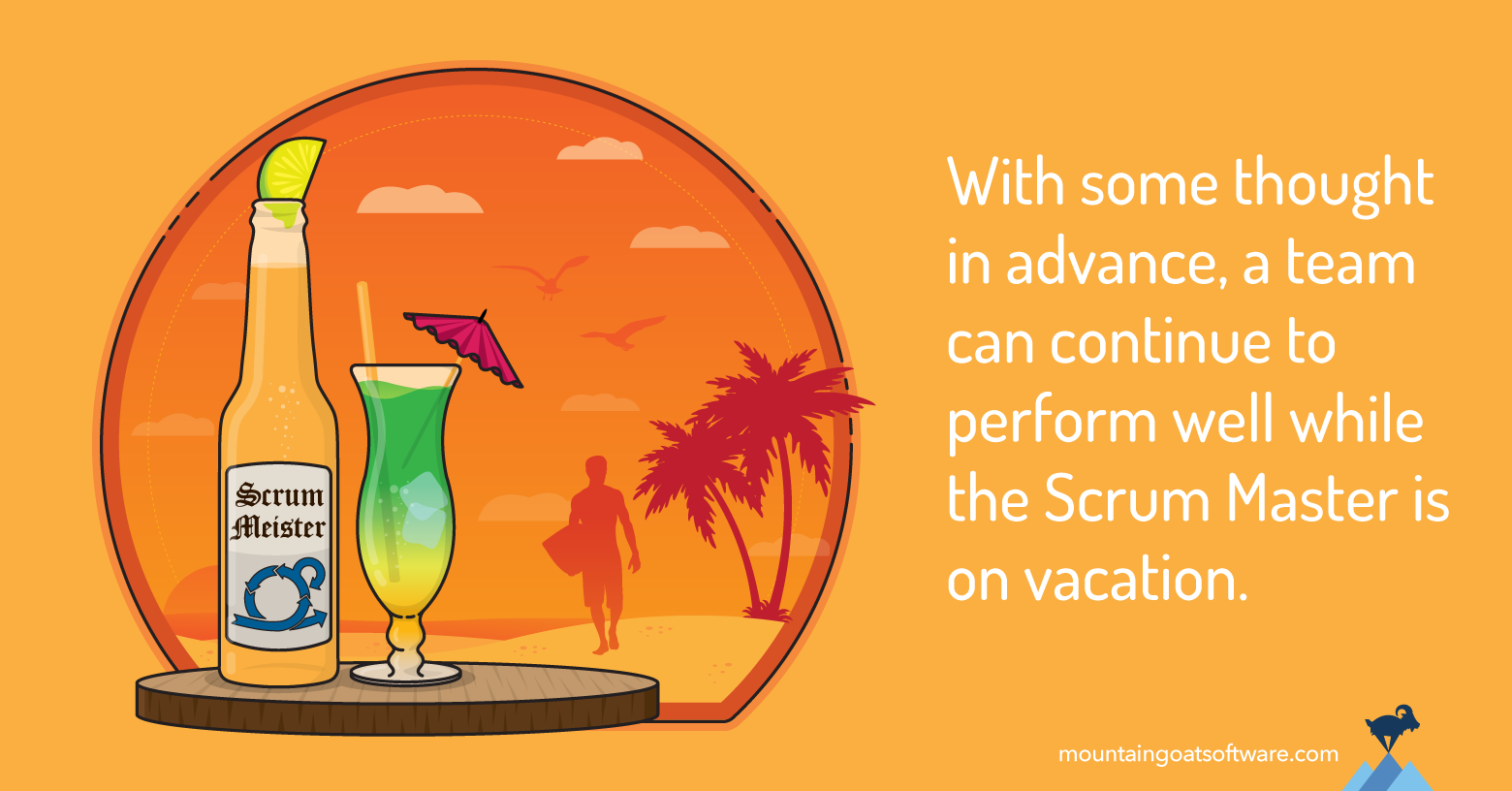Ahhh, summer. Warm weather. Beaches. Barbecues. And vacations.
Vacations are great, but what happens when a team's Scrum Master goes on vacation? Should someone fill in? Should the team refactor code and fix bugs rather than try to work in a sprint while the Scrum Master is away?
To a large extent, answers depend on how long the Scrum Master will be on vacation. The one (and only) nice thing about the short vacations prevalent in the United States is that it's fairly easy for a team to get by without their Scrum Master for a week. It's much more challenging when a Scrum Master takes a more European month-long holiday.
Regardless of whether the Scrum Master will be gone for a week or a month, there are four things good Scrum Masters will do to ensure their teams continue to be successful without them.
Find a Replacement
First, the vacationing Scrum Master should consider looking for a temporary replacement. If the team is experienced with Scrum and with each other, the team could be fine without a Scrum Master if the Scrum Master’s absence is going to be short. I define short as up to a week for any team and up to two weeks for a team doing four-week sprints.
All other teams should try to have a replacement Scrum Master. The replacement could be a Scrum Master from a different team who helps out. It could be someone on the team who is curious about the role and who perhaps wants to try it out in a low-key manner.
A Scrum Master’s vacation can also be a good time to rotate the role among team members who are interested in or skilled at the role. The role might rotate daily or weekly depending on the length of the absence.
Clarify Expectations with the Team
In addition to securing a replacement Scrum Master, if one will be needed, a second thing a Scrum Master should do before departing on vacation is to clarify expectations with the team.
One important expectation is that the team will continue (as much as is practical) to use Scrum. A common fallacy is that some of the Scrum meetings exist for the Scrum Master. Teams that believe the daily scrum is a status update to the Scrum Master will be quick to abandon that “unnecessary” meeting when the Scrum Master is on vacation.
If it hasn’t been done long before, departing Scrum Masters need to correct any misperceptions that Scrum’s meetings or artifacts existing solely for a Scrum Master’s own benefit.
The Scrum Master should also set the expectation that not every impediment the team faces will be removed as quickly as normal. Even if a replacement Scrum Master is in place, the replacement may not have the time, skills, or connections to remove impediments as quickly as the vacationing Scrum Master.
Consider Changing the Sprint Length
A third consideration is changing the team’s sprint length. I rarely recommend changing a team’s sprint length, unless the team is making what they consider a permanent change.
For example, don't insert a three-week sprint into your normal pattern of two-week sprints without a really good reason for doing so. Sometimes Christmas or other similarly impactful holidays can be a good reason. If most of your team is going to be gone at the end of one sprint (and start of the next) because of a major holiday, it's worth at least considering making a sprint a week longer (or shorter).
Similarly, if the Scrum Master is going to be on vacation when a team would normally conduct its review, retrospective and next planning meeting, it might be worth delaying the end of the sprint by a week--in other words, add a week to this, and only this, sprint..
I would recommend a sprint-length change only for teams that are very new to Scrum and need their permanent Scrum Master there to facilitate the end-of-sprint/beginning-of-sprint events. A team with sufficient Scrum experience should be quite adept at those meetings and should be fine without its regular Scrum Master.
Consider Providing Emergency Contact Information
Finally, the vacationing Scrum Master should consider leaving emergency contact information with the team.
I'm a big proponent of being able to completely disconnect from work while on vacation. (Of course, I rarely follow my own advice.) However, there's a difference between being disconnected and being completely unavailable.
Because of their role as impediment solvers, Scrum Masters often have their fingers in many things. Because of this, someone on the team may occasionally need to get in touch with the Scrum Master.
This should happen very infrequently, but needs can occasionally arise. For example, last year I needed to contact a vacationing Scrum Master to get her login information for a tool she'd subscribed to for the team and was the only administrator on. We exchanged three text messages but it helped avoid a really painful workaround the team would have had to do for 3 weeks.
Another time, I reached out to a vacationing Scrum Master who had forgotten to leave notes on the seating arrangements for the new building the team was moving into. This Scrum Master had facilitated a slightly heated series of discussions with team members over how they would use their new space. I wanted to honor those earlier discussions by doing what had been agreed upon. I also wanted to avoid putting the team through the arguments again.
I don't want a Scrum Master thinking about work while on vacation, but providing emergency contact info to one person on the team or to another Scrum Master can be helpful as long as the privilege isn't abused. It really should be for emergencies only.
A Team Can Perform Well While the Scrum Master Is Away
A great Scrum Master is a vital component of a successful, high-performing Scrum team. But a team can continue to perform well while the Scrum Master is on vacation as long as some thought is given in advance to finding a replacement Scrum Master, clarifying expectations about what should happen while the Scrum Master is away, changing the sprint length, and providing emergency contact information.
What Do You Think?
What’s your experience with a Scrum Master going on vacation? Are there things you’ve done or seen that help a team continue to do well while the Scrum Master is away?
Last update: May 16th, 2022









